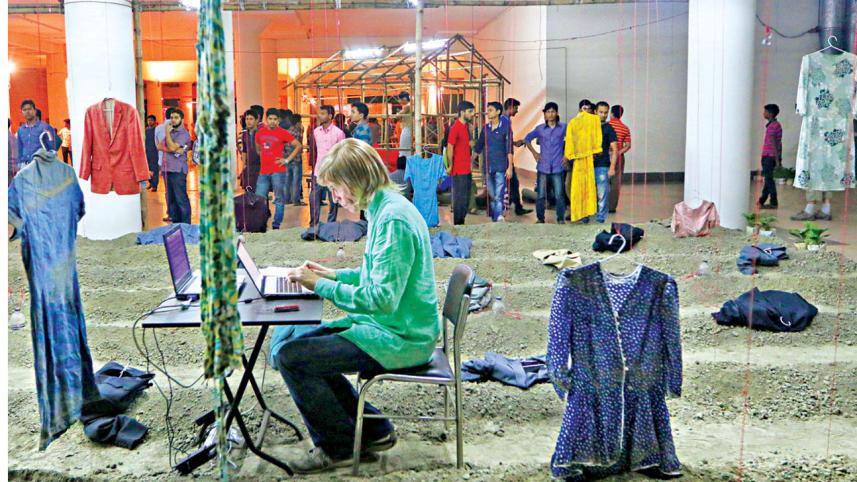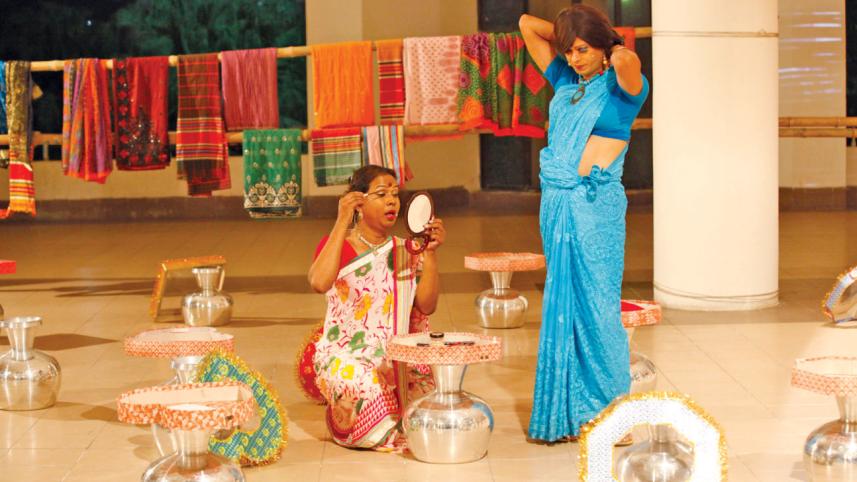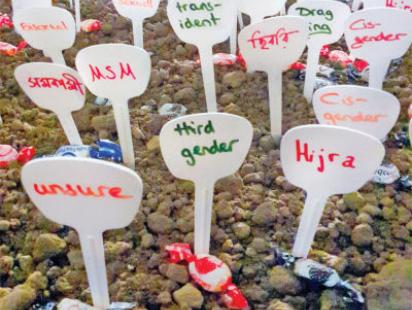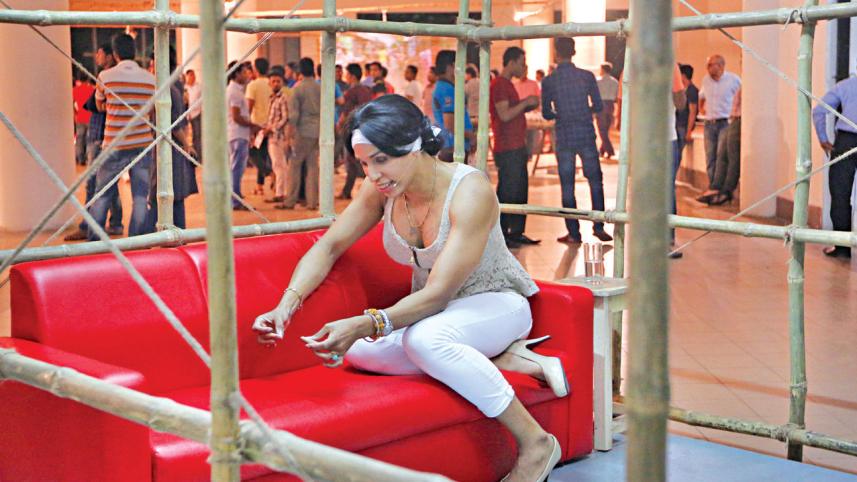Breaking the Traditional Mould

Photo: Kazi Tahsin Agaz Apurbo
In a three-day event titled ID-Clash, transgender performers from Europe and Latin America along with representatives of the hijra community from Bangladesh showcase different concepts for living and stages of transformations through narration, writing, video projections, songs and stage performance.
It is an event that attempts to challenge the traditional woman to man spectrum. It addresses the lifestyle of people who consider their identity to fall outside of two distinct and limited identities of masculine and feminine.
The name of the event itself announces the dilemma that the transgender people face regarding their identity. They feel different, because they don't conform to the binary biological aspects of gender identity of being a male or a female. They often discover themselves living in an alien body and suffer from a sense of dislocation because they don't quite meet society's expectations of the gender role assigned to them at birth. The event is about those people who believe in the countless possibilities and models of gender self-definition that exist, when they deny to fit into the societal role of woman or man.


Organised by the Goethe-Institute Bangladesh, in association with Bangladesh Shilpakala Academy (BSA), this international performance art and installation show took place at the Plaza premise of BSA's exhibition building from November 5 to 7 that held the audience in awe with its brilliant content.
Anonnya, a Bangladeshi NGO worker and Katha, an artiste of Shilpakala Academy along with German artistes Michelle Niwicho, Melissa Marie Garcia Noriega and Greta Pimenta were the key performers.
An initiative of an international project, the idea of ID-clash was born back in 2010 when Angela Grünert, the then director of the Goethe-Institute in Bangladesh invited Angie Hiesl and Roland Kaiser to organise a workshop on sexual identity as part of the Rainbow festival. She also made an intercultural communication between the German performance artistes and the community of hijras, or “third gender” which sparked the idea for a project that involves artistes from both of these areas.
Judith Mirschberger, the new director of Goethe-Institute has continued to support the project furthermore. At present it runs with support from the Nationals Performance Netz, Federal Government Commissioner for Culture and a number of other cultural departments of the German federal state.
The attitudes toward people who don't fit into the traditional mould have made remarkable advances in the last few years around the world including Europe. In fact, hospitable havens and niches have developed as a result of the public debate about equality and social acceptance. Yet the individual lifestyles of transgender people living in Europe face discrimination, marginalisation and hostility on a daily basis. On the other hand the lifestyle of the hijras in southern Asia follows the century-old mythological tradition, yet their survival is shaped by the taboos and social prejudice.
The event, thus works as an anti-discrimination framework that helps to ensure transgender protection. The performances in Id-Clash have given an opportunity to the audience to encounter people who do not identify with gender role-standards.




 For all latest news, follow The Daily Star's Google News channel.
For all latest news, follow The Daily Star's Google News channel.
Comments